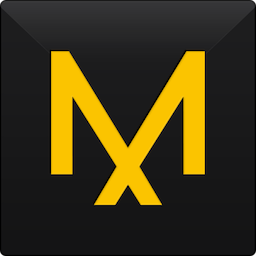

When you then go to publish your derivative products, you run into issues. Just use it for your own enjoyment, and leave it at that.

Performing in public, a song written by someone else, whether you copy their arrangement (i.e. play it note-for-note as they played it) or use your own arrangement, involves a performance royalty to the songwriter. This is typically owed/paid by the proprietor of the venue or the promoter. You, as a performer, may also be wearing one of those hats too. Your obligation would be to the performance rights society that the original artist lists their music: ASCAP, SESAC, BMI, etc. It is a great program for users who do not like iTunes.
#Swinsian hacks for mac
iMobie AnyTrans is a nice combination of power and simplicity for Mac or Windows PC users. However, it manages the media library really well while keeping syncing the files to your mobile devices. If you sell recordings of your own version of someone else's song, you have wandered into something slightly different, a mechanical license. It is a decent application with not many features.

That is (in the USA) managed by the Harry Fox Agency, and there are statutory rates for what you need to pay, per copy manufactured. Put very simply, none of this matters until that moment when money start changing hands. They can also be hidden if you prefer a minimal interface. Customise The art grid, column browser and track inspector provide multiple ways to view and navigate your music. If you learned songs for 50 years, copying them down to paper for your own edification and enjoyment, but not disseminating those charts or selling recordings of your performances, you have no obligations. Swinsian is a sophisticated music player for macOS with wide format support, folder watching, advanced tag editing and designed to be responsive even with the largest libraries. Is it legal for me to transcribe a copyrighted song? or somebody makes money, you wade into the copyright/licensing world. Transcribing a musical work is still making a copy, even if it is for personal study and is never sold, or even shared. It is unlikely to attract a suit even if technically it could. But if someone transcribes and gives away many copies of music now in print, a suit would probably follow. However, copyright infringement is not (in most cases) a crime. Unless the copyright owner chooses to file suit, nothing will be done.ĭo I need permission to sell or give away my musical transcriptions for free, in both when case the transcription may imitate the original sounds or is a recomposition of the songs. Making copies, and making derivative works based on a protected works, are both rights of the copyright owner, and neither may be done without permission, unless an exception to copyright applies (such as fair use or fair dealing). In some countries there is a specific exception for personal use, but there is not under US law. And distributing copies widely is much less likely to be fair use, even if there is no charge made.Ĭan I perform the transcription in public, and the performance may involving profits for myself (i.e selling tickets, crowd donation, selling performance recordings.) Copies for personal use will often come under fair use, but far from always.


 0 kommentar(er)
0 kommentar(er)
